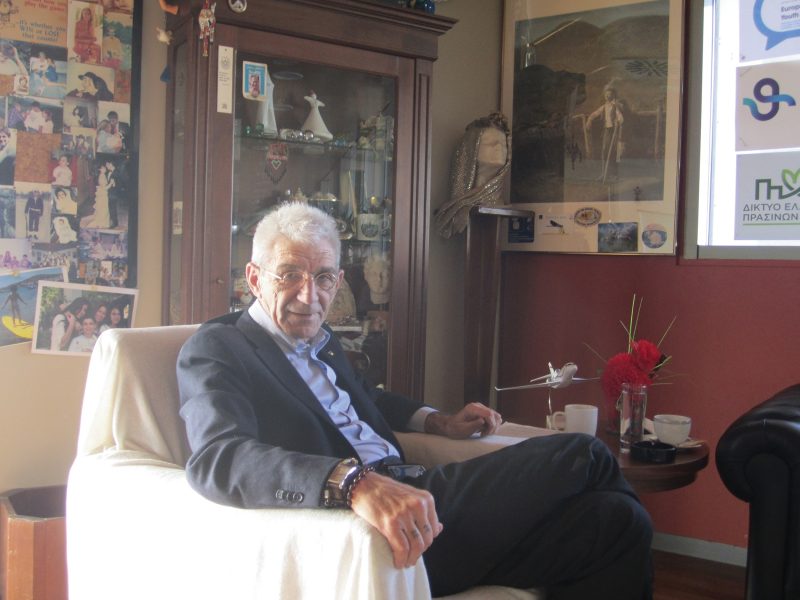Until recently, wars had a venue. They had a front. Wars had a beginning, and often came to a clear end. Then the war against terrorism came along. This war was everywhere and nowhere; it could pop up anyplace. And although the war was more manifest in some places than others—Afghanistan and Iraq, for example—it remained elusive. Then the financial crisis hit, and proved every bit as elusive as the “real” wars at the start of the twenty-first century. The crisis, too, was everywhere and nowhere, but it did have a single nation at its epicenter: Greece.
Not at Lehman Brothers, which collapsed in 2008, and not on Wall Street; Greece was where the fire broke out. One heard the word contamination again and again, but this time it was no imperial cultural contamination, no creeping process of civilization. This time the crisis was a contagion: debts and obligations that would never be repaid, a gradual deterioration of the financial immune system.
And so, in the darkest days of winter, I decided to set off for Thessaloniki, Greece’s second-largest city. Cities like that are often at least as interesting as the capital, and if God is in the details, then the truth is going to be revealed at the periphery. In conversations with people working in various capacities to regenerate Greek social and economic life, I would try to assess the collateral damage from this newest international conflagration. But I also went to Thessaloniki to meet its mayor, Yiannis Boutaris, who had recently rocketed to international stardom. In newspaper articles he was portrayed as a “good Greek,” a man who wanted to combat corruption, who did not compare Angela Merkel to Hitler, who did not blame everything on capitalism, and who had no desire to defend in veiled terms the country’s nepotism and status quo. In those articles one detected an unmistakable relief at the fact that a good Greek had been found.
I would spend Christmas in Thessaloniki—the light in the darkened world of the crisis.
I. KOSTAS
About a fifteen-minute walk uphill from the sea—Thessaloniki has an upper city and a lower city—is the Rent-Rooms Thessaloniki youth hostel. In the cafeteria there I meet with Kostas Terzopoulos. He has a little beard and kindly, not-quite-shy eyes. Kostas is wearing a gray sweater that looks like it’s been washed too often. I’ve been told that he organizes the Totally Naked Bike Ride in Thessaloniki. Why wear clothes in a climate like this? Clothes, too, are something on which one can economize.
We both order tea. “To start with, it’s an ecological thing,” Kostas says. “I’m a member of the Green Ecological Party. It’s a small party....
You have reached your article limit
Sign up for a digital subscription and continue reading all new issues, plus our entire archives, for just $1.50/month.
Already a subscriber? Sign in





